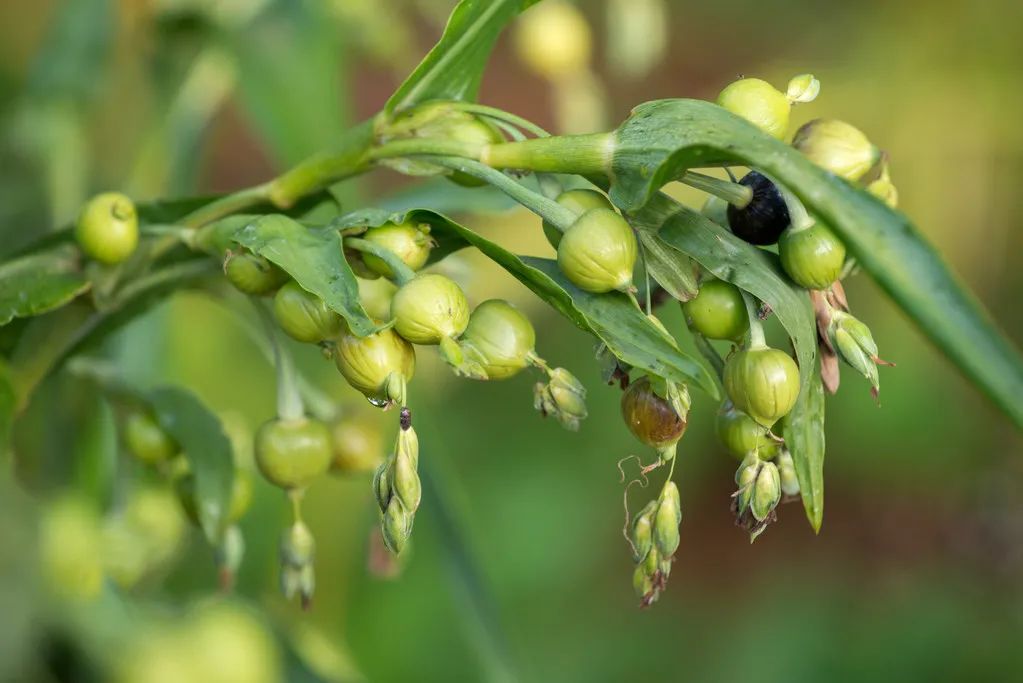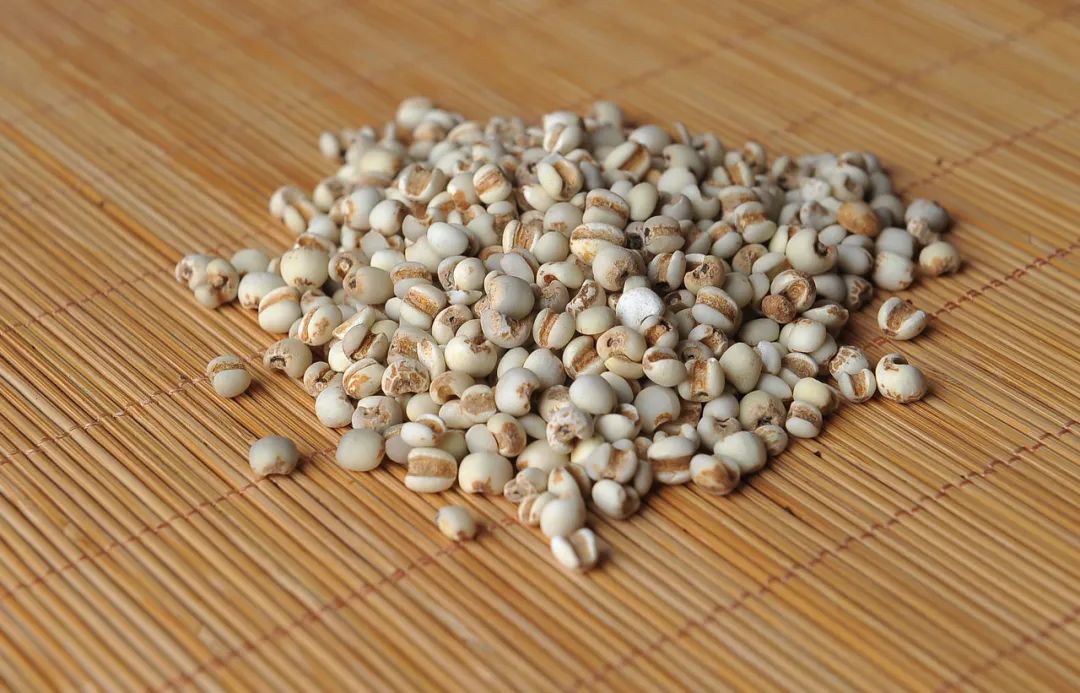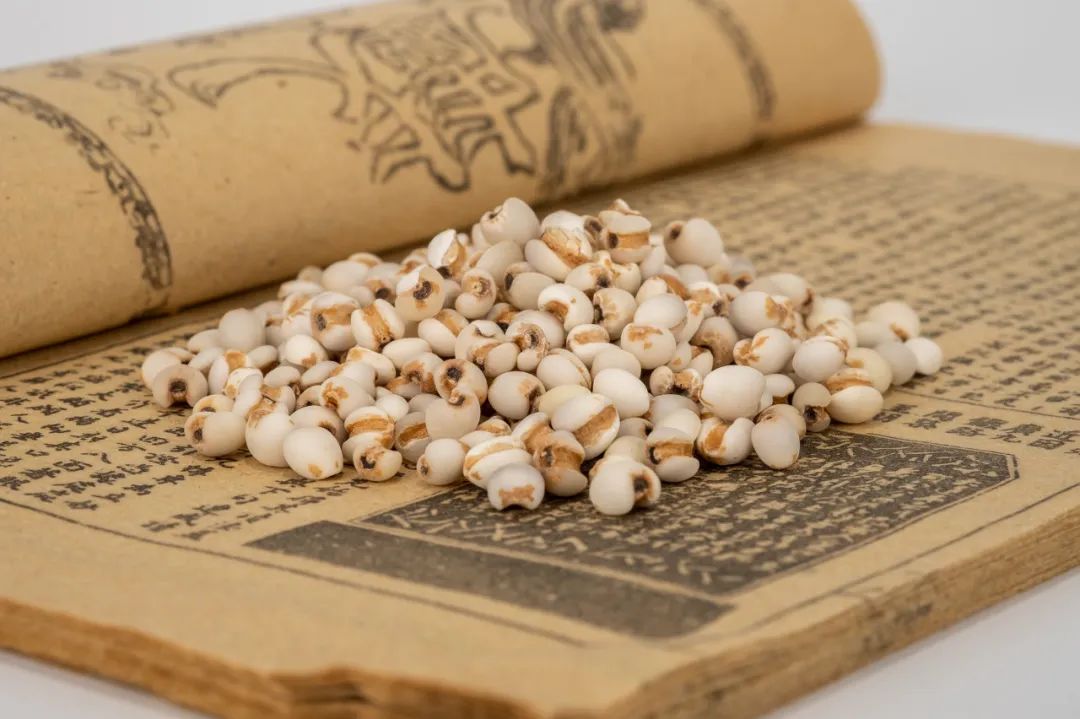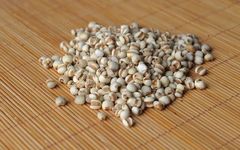
The Chinese herb Coix Seed (Yi Yi Ren) is known as the “King of Grasses” among world plants. It is related to the idiom “Yi Yi Ming Zhu” (referring to being wrongfully accused), which comes from a historical story:
From the Book of the Later Han: Biography of Ma Yuan: Initially, Yuan was in Jiaozhi, often consuming Coix seeds, which could lighten the body and reduce desires, thus overcoming miasma. The Coix seeds from the south are large, and Yuan intended to use them as seeds, loading a cart when returning from the military. At that time, people regarded them as rare treasures from the southern land, and the nobility all looked on. Yuan was favored by the emperor at that time, so no one dared to report it. After his death, someone accused him in a memorial, claiming that what he brought back were all treasures like pearls and rhinoceros horns. Ma Wu and Marquis Yu Ling, among others, explained their shapes in memorials, which only angered the emperor further. Yuan’s wife and children were frightened and did not dare to return his coffin to the old grave, hastily buying a few acres of land west of the city for a simple burial. Guests and old friends did not dare to pay their respects. Ma Yan, connected with Yuan’s wife, went to the court to plead guilty. The emperor then produced the slanderous memorial to show them, and only then did they realize the accusations were false. They submitted memorials to plead their case, six times in total, with very sorrowful words, and then were allowed to bury him.
Translation:
Initially, Ma Yuan was in Jiaozhi (part of present-day Guangdong and northern Vietnam, where he pacified southern rebellions), often eating Coix seeds, as they could eliminate miasma (a condition where patients experience numbness in the limbs, swelling in the lower body, and eventually develop full-body edema, which is why TCM refers to it as Beriberi (Jiao Qi Bing)). Long-term consumption can lighten the body and reduce desires. The Coix fruits from the south are large, and Ma Yuan wanted to use them as seeds, loading a cart when returning from the military. At that time, people regarded them as rare treasures from the southern land, and the nobility all looked on. Ma Yuan was favored by the emperor at that time, so no one dared to report it. After Ma Yuan’s death, someone accused him in a memorial, claiming that what he brought back were all treasures like pearls and rhinoceros horns. Ma Wu and Marquis Yu Ling, among others, explained their shapes in memorials, which only angered the emperor further. Ma Yuan’s wife and children were frightened and did not dare to return his coffin to the old grave, hastily buying a few acres of land west of the city for a simple burial. Guests and old friends did not dare to pay their respects. Ma Yan, connected with Ma Yuan’s wife, went to the court to plead guilty. The emperor then produced the slanderous memorial to show them, and only then did they realize the accusations were false. They submitted memorials to plead their case, six times in total, with very sorrowful words, and then were allowed to bury him.
Coix seeds were falsely accused of being pearls, which also indicates their appearance and color. Their fruits mature in autumn, are oval-shaped, white or dark brown, with a hard shell and white inner seed. Those that are large, plump, white, and intact are the best.
Coix Seed, also known as Coix, Yi Mi, Yi Ren Mi, Gou Zi Mi, and Liu Gu Mi, is the dried mature seed of the plant Coix lacryma-jobi, a member of the grass family. The plants are harvested in autumn when the fruits mature, dried, and the fruits are threshed, then dried again, removing the hard shell, yellow-brown seed coat, and impurities to collect the seeds. It was first recorded in the Shen Nong’s Herbal Classic, classified as a superior herb, with a sweet, bland, and cool nature, entering the spleen, stomach, and lung meridians. Its main functions include strengthening the spleen, promoting diuresis, alleviating pain, and clearing heat and pus. It is used for edema, beriberi, difficult urination, dampness and pain, spleen deficiency diarrhea, lung abscess, intestinal abscess, and flat warts.

Effects and Applications
According to the Compendium of Materia Medica: “Coix Seed is a Yangming herb, capable of strengthening the spleen and benefiting the stomach. If deficient, it supplements its mother, thus it is used for lung atrophy and lung abscess. For diseases of the muscles and bones, it is based on treating Yangming, thus it is used for muscle spasms and wind-dampness. The earth can overcome water and eliminate dampness, thus it is used for diarrhea and edema.
1. Strengthening the Spleen and Promoting Diuresis:It is particularly suitable for urinary difficulties, edema, beriberi, and spleen deficiency diarrhea due to spleen deficiency and damp stagnation, functioning similarly to Fu Ling (Poria); it also has the effect of clearing damp-heat, commonly used clinically for damp-heat dysuria.
2. Alleviating Pain:Due to its ability to promote diuresis, relax muscles, relieve pain, and reduce heat, it is a key herb in the clinical treatment of rheumatic diseases, especially effective for those with rheumatic heat pain, or pain caused by cold-damp or damp-heat.
3. Clearing Heat and Draining Pus:It can clear heat from the lungs and intestines, drain pus, and reduce abscesses.
4. Activating Blood and Regulating Menstruation:Used to treat menstrual irregularities and dysmenorrhea caused by damp-heat.
It is evident that “Coix Seed” has a wide range of applications.
Modern Research on Coix Seed
Coix seeds contain 16.2% protein, 4.65% fat, 79.17% carbohydrates, and a small amount of vitamin B1 (330ug%). The seeds contain amino acids (leucine, lysine, arginine, tyrosine, etc.), coixenolide, coixenol, triterpenoid compounds, and other components. Its nutritional value ranks first among grass family plants.
The main active components include coix seed oil, alcohols, aldehydes, ketones, and esters, among which coix seed oil has anti-tumor activity and can effectively inhibit the proliferation of cancer cells, making it useful for adjuvant therapy in gastric cancer and cervical cancer. It is highly regarded in Japan as an anti-cancer food.
Modern pharmacological studies show that Coix Seed has anti-tumor properties, enhances immune function, lowers blood sugar, and has anti-inflammatory and analgesic effects, making it applicable for treating gout, colitis, arthritis, primary hyperhidrosis, and stubborn insomnia. Coix seed oil can lower blood sugar, reduce serum calcium, dilate blood vessels, and has diuretic effects.
A Dual-purpose Food and Medicine – The World’s Best Rice
Coix Seed is a dual-purpose food and medicine, often referred to as “The World’s Best Rice”.
Coix Seed is high in fiber, low in fat, and low in calories among grains, making it one of the best staple foods for weight loss. It is also rich in protein, fats, vitamins, and sugars, commonly used for porridge, promoting metabolism and reducing gastrointestinal burden, serving as a supplement for weak patients, while also lowering blood sugar, blood lipids, and blood pressure.
Coix Seed is also a traditional beauty product, known for its effects on moisturizing skin, whitening, and removing spots. Regular consumption or external application of powdered Coix can make the skin smooth, moist, and fair, and can eliminate acne, spots, and flat warts, making it a common remedy for treating facial flat warts, chloasma, and acne.

Daily Consumption of Coix Seed
Coix Seed is an excellent health food. For those with a weak constitution, characterized by spleen deficiency leading to dampness, often manifesting as sweating, poor appetite, abdominal distension, and loose stools, it can be boiled and consumed daily.
1. Coix Seed and Red Date Tea
Ingredients:50g Coix Seed, 25g red dates, 2g green tea.Preparation:Put Coix Seed and pitted red dates into a pot, add appropriate water and boil until soft. Brew green tea with boiling water, then pour it into the pot and cook together for 3 minutes. Let it cool slightly and drink as tea.
Effects:Benefits Qi, strengthens the spleen, detoxifies, and has anti-cancer properties.
2. Coix Seed Porridge
Ingredients:30g Coix Seed, 60g japonica rice.Preparation:Cook Coix Seed and japonica rice together into porridge.Uses:Strengthens the spleen, promotes diuresis, clears heat. It can be used as an adjunct treatment for children with chickenpox and is also suitable for eczema due to spleen deficiency.
Dosage:Twice daily.
3. Coix Seed and Red Bean Porridge
Ingredients:18g Coix Seed, 15g red beans, 60g japonica rice.Preparation:Soak red beans and Coix Seed in cold water for half a day, then cook with japonica rice into porridge.Uses:Can be used for senile obesity.
Dosage:One dose daily, divided into two servings in the morning and evening, for a course of 10 days.
4. Yam and Coix Seed Porridge
Ingredients:60g yam, 30g Coix Seed.Preparation:Cook together into porridge.Uses:Yam tonifies Qi and nourishes Yin, strengthens the spleen and kidneys; Coix Seed is sweet, bland, and slightly cold. It can promote diuresis, alleviate dampness, and strengthen the spleen to stop diarrhea. The Compendium of Materia Medica states, “For treating thirst and drinking water, use Coix Seed to cook porridge.” The Supplement to the Materia Medica also mentions, “Coix Seed is used for thirst. This porridge can be part of the daily diet for diabetic patients, especially suitable for those with thirst and hunger.
Dosage:Twice daily.
5. Coix Seed and Radish Soup:
Ingredients:30g Coix Seed, 500g white radish, 5g ginger, 10g green onion, a pinch of salt, 30g chicken fat.Preparation:1. Soak Coix Seed in clean water for 6 hours, remove impurities, and wash; clean and cut the radish into pieces; crush the ginger and cut the green onion into sections. 2. Place the radish, Coix Seed, ginger, and green onion in a stew pot, add 2500ml of clean water, bring to a boil over high heat, skim off the foam, add chicken fat, and then simmer for 35 minutes, adding salt to finish.Uses:Strengthens the stomach, aids digestion, promotes diuresis, removes warts, and beautifies the skin. Suitable for symptoms caused by internal dampness and toxins leading to flat warts and dry skin.
Dosage:Once daily, for a course of 10 days.
Precautions
This product is mild and should be consumed frequently and for a long time. Caution is advised for those with spleen deficiency without dampness, dry constipation, and pregnant women.

This article is an original/compiled work by China Pharmacy,
Reproduction without permission is prohibited.

Dear readers, the China Pharmacy public account is continuously collecting articles. If you wish to express your thoughts, document your life, or share experiences… you can send your works in text or image form to [email protected] (email), with a payment of 200 yuan + 0.01 yuan per reading volume. Please kindly indicate your contact information when submitting.
Let others know you are “watching” ↘

